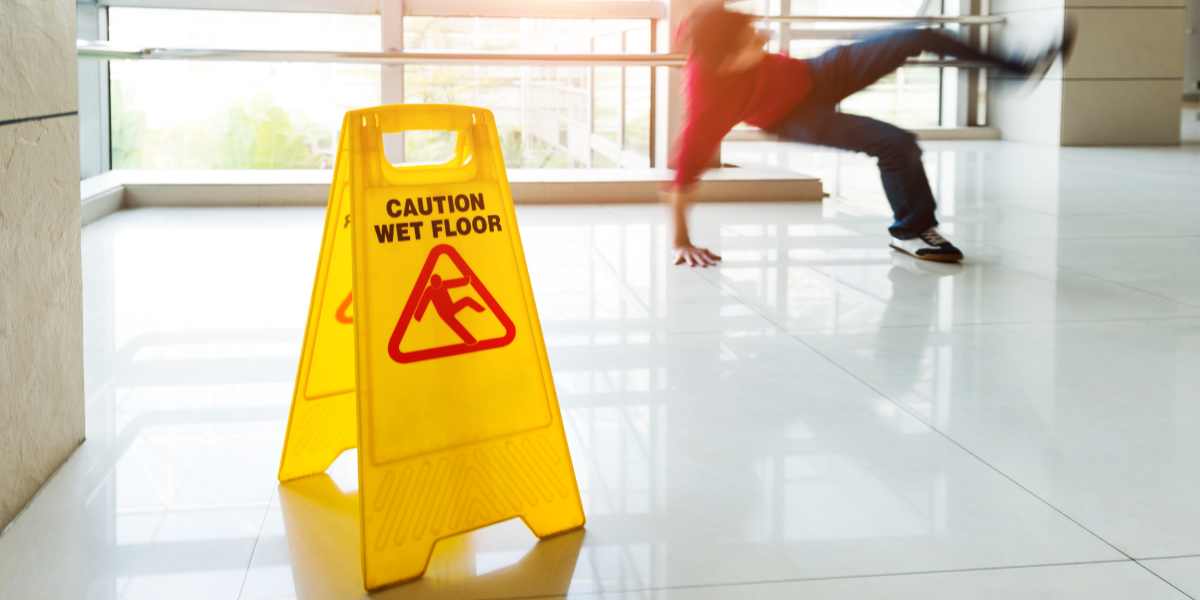Georgia Slip and Fall Injuries
The Shepherd Rehabilitation Center discovered that falls account for about 30.5% of all spinal cord injuries. In addition to spinal cord injuries, fall victims often endure other injuries. Knee, ankle, wrist, and elbow injuries are common complaints slip and fall accident victims make after a serious fall. These injuries can result in breaks, strains, sprains, torn muscles, ligaments, and tendons. Head injuries like concussions and lacerations are also common.
Why Makes Slip and Fall Accidents So Dangerous?
Age, overall health, weight, and how the person fell are factors contributing to the injuries a slip and fall victim suffers. Knee damage can happen when a person steps in a puddle of liquid on a linoleum floor in a supermarket. The person may not fall to the floor, but their foot might slide out from underneath them suddenly and unexpectedly. The sudden and unexpected motion can be violent. The violent motion can strain or hyperextend the knee, causing structural damage to ligaments and cartilage in and around the knee. Hip injuries can happen similarly.
Hitting the floor has the potential to increase the severity of the injury. As demonstrated above, the slip itself can injure a person. However, if the individual loses his or her balance and falls, then striking the floor increases the risk of serious injury. Since many slip and fall accidents occur unexpectedly, people seldom have the opportunity to protect themselves while falling. The falling person might have a chance to take some defensive action. Thrusting a hand out is one such reflex. Sticking an arm out may help break the fall and prevent the falling person from striking their head or face on the floor or another nearby object. The angle at which the arm hits the floor, coupled with the bodyweight of the person, can easily lead to sprains and strains of the fingers, hand, wrist, and elbow, as well as breaks and dislocation injuries.
Who is Liable For Injuries Suffered In A Fall?
The owner or occupier of the property on which the fall occurred may be liable for injuries. The injured person’s rights to recovery may depend upon where the fall occurred, how the fall occurred and whether the person who fell was permitted on the property. Georgia law recognizes three types of people who use another’s property. The land owner’s or occupier’s lawful obligations depends upon the nature of the person entering their property. Those categories are:
- Invitees,
- Licensees, and
- Trespassers.
An invitee is a person who visits a store or restaurant, or another place where people are invited to enter. The store owner or occupier of the store has the obligation under Georgia law to protect invitees from unsafe conditions on the property. The owner or occupier must use reasonable care to keep the premises and all approaches to the premises safe. On the other hand, the invitee has the duty to protect themselves from falling upon dangers that are open and obvious. Furthermore, the landowner must know or should have known about the danger to be held liable.
A licensee is a person who enters the property of another by invitation. The most common licensee is a house guest. Under Georgia law, the landowner owes the licensee a duty to keep the premises free from a “willful or wanton” injury. In other words, the licensee has the right to make a claim for damages against the landowner if the landowner or occupier was reckless in not warning about a known danger on the land.
Under Georgia law, trespassers have no right to claim injuries upon another’s land.
Sources:
https://www.shepherd.org/patient-programs/spinal-cord-injury/Spinal-Cord-Injury-Causes
Youngblood v. ALL AMERICAN QUALITY FOODS, INC., Ga: Court of Appeals 2016


